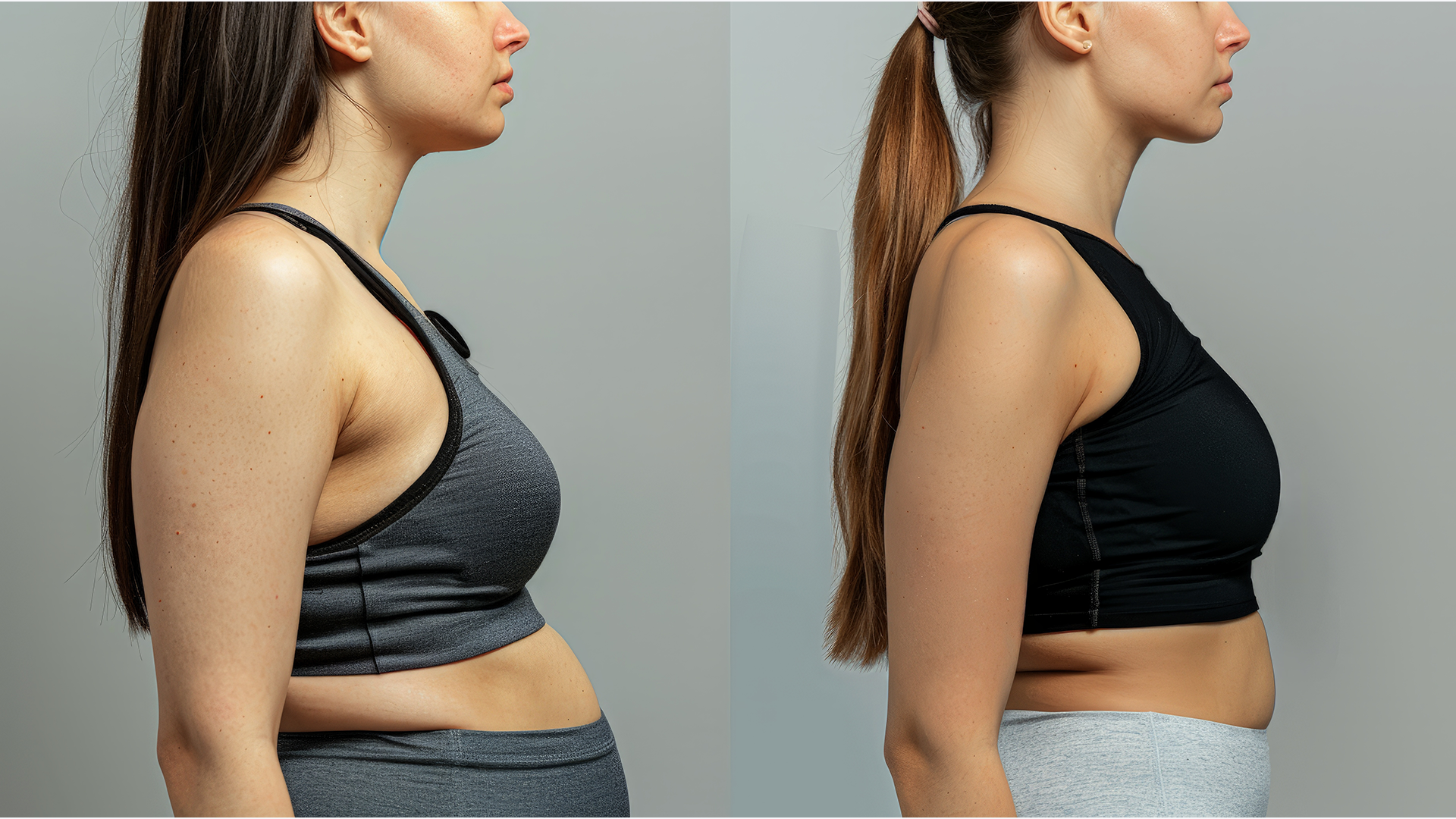Let’s be honest for a moment – dieting and losing weight isn’t always easy. Hell, for a lot of us it is plain hard.
From health issues to medical conditions; any one of these could be impacting on your ability to lose weight, meaning it doesn’t matter how much you exercise or how little you eat; there will be times when the weight simply doesn’t want to drop off.
So what can you do?
What is Bariatric surgery? How does it work?
Bariatric surgery is a form of weight loss surgery that can help you to lose weight by restricting how much food your stomach can hold, causing malabsorption of nutrients.
By making changes to your digestive system and creating a gastric restriction – usually, through minimally invasive techniques – they can help you to get full faster, eat less and trigger positive hormone changes in your gut.
Why is this weight loss surgery done (in what cases)?
Now, these type of surgeries aren’t available to everyone…
They are usually only offered when dieting and exercise haven’t worked to help you lose weight, or if you suffer from a serious health condition due to your size e.g. gastroesophageal reflux disease, heart disease, high blood pressure, severe sleep apnea, Type 2 diabetes or stroke.
In these situations, you will be offered a choice of four weight loss surgeries (otherwise collectively known as bariatric surgery): gastric bypass, sleeve gastrectomy, adjustable gastric band and biliopancreatic diversion with duodenal switch.
Gastric bypass is the most popular amongst surgeons as it has fewer complications. However, they can all pose serious risks to your health, as well as cause some nasty side effects.
Who is it for?

To be eligible for bariatric surgery, you need to fit into the following categories:
- You’ve got to have a BMI of 40 or higher (classed as extremely obese)
- You’ve got a BMI of 35-39.9, but have got a serious weight-related health issue e.g. type 2 diabetes, high blood pressure or bad sleep apnea. You can sometimes qualify if you’ve got a BMI of 30-34, but your health problems need to be a serious risk to your well-being.
Yet, even if you do fall into these categories, gastric bypasses are not suitable for everyone who is severely overweight. You will also have to meet certain medical guidelines and will have had to undergo extensive screening to make sure you are eligible.
Similarly, you will have to show a willingness to make permanent changes to your dietary habits and levels of physical exercise. These include: being willing to participate in long-term follow-up plans where your nutrition, lifestyle, and behavior is reviewed and assessed.
More important than all of this though – you need to be aware that this isn’t a quick fix that will solve all of your weight loss problems. You need to be prepared to maintain and preserve these results through continued hard work and healthy changes to your diet and exercise.
What are the risks of bariatric surgery?
Whilst surgeons aim to be as minimally invasive as possible, all four types of bariatric surgery are major. They all pose serious health risks to your body, both in the short and long term.
These risks can vary from surgery to surgery, but they all have the common dangers of causing:
- Excessive bleeding
- Infection
- Adverse reactions to anesthesia (when you are put under)
- Blood clots
- Breathing difficulties/lung problems
- Leaks in your gastrointestinal system
- And in rare cases – death
Then there are the long term risks. The ones that can crop up months or even years later. Again, they will depend on the type of surgery you’ve opted for, but can include:
- Bowel obstructions
- Dumping syndrome resulting in diarrhea, nausea, and vomiting
- Gallstones
- Hernias
- Hypoglycemia (low blood sugar levels)
- Malnutrition
- Stomach perforation
- Ulcers
- Vomiting
- And in rare cases – death
What results can you expect?
The main goal of each of these bariatric surgeries is to provide you with long term weight loss. The amount you lose will depend on which of the four you have, as well as what changes you make to your diet and lifestyle.
For instance, if you continue to eat fatty foods that are high in calories, it won’t matter that your appetite has shrunk; these dietary choices will hinder your weight loss or even cause you to gain weight despite the surgery.
However, eat and exercise right, and it is possible to lose at least 50% – if not more – of your excess weight over a two year period.
But these are not the only benefits you can expect…
Alongside improving your general quality of life, gastric bypass surgery can also improve/resolve some of the conditions that can arise from being overweight: sleep apnea, high blood pressure, heart disease and type 2 diabetes (plus many more).
Now most of the time these surgeries go without a glitch, but there are occasions where they might not pan out like you’d hoped, or something goes wrong during or after the procedure.
Examples include:
- The adjustable band not working properly
- You not losing weight because the procedure doesn’t work right, or has stopped.
In either situation, if you aren’t losing any weight or begin to develop other complications, you need to speak to your doctor straight away, as they could lead to other serious health problems.
Things to consider after your weight loss surgery:
- You won’t be allowed to eat for 1-2 days after surgery to give your stomach and digestive system time to heal.
- You’ll have to follow a diet set by your doctor for the first 12 weeks. This will begin as a liquid only diet before progressing to soft foods and then regular foods. There will also be a restriction on how much you can eat and what you are allowed to eat and drink.
- You’ll have to attend regular medical check-ups/consultations for the first 3 months, so your doctor can run blood work, exams, laboratory testing and generally make sure everything is okay.
- In the first 3-6 months you may experience the following as a consequence of rapid weight loss: body aches, fatigue/tiredness, feeling cold, dry skin, hair loss/hair thinning and mood swings.
Bariatric surgery requirements – what do you need to do to prepare?
If after all the medical screenings and assessments you qualify for a gastric bypass (or one of the other procedures), you will be given a set of instructions that you’ll have to adhere to, to help you prepare for your chosen surgery.
Usually, these consist of undergoing various lab tests and exams in the run-up to the surgery. Similarly, you may have to follow a restrictive dietary plan where you are only able to eat, drink or take certain medications (as well as not smoke).
In addition, you may be asked to take up a fitness program/exercise to help prepare you for weight maintenance after the surgery. This is an important one, as it can often be difficult to pick up something new when your body is already going through a lot of changes. Having a fitness plan/exercise class already established will make it easier for you to continue (as you’ll already have the stamina to perform).
Another thing to remember is your aftercare…
You need to plan ahead and make sure you’ve got a support network ready to help and assist you at home. You may even need home care at the start (depending on your current health needs and requirements).
What types of bariatric surgery are there?
Gastric bypasses may be the go-to surgery for most surgeons, but it isn’t your only option. In fact, there is a wide variety to choose from, with some better suited to your situation than others.
Gastric bypass
Also known as Roux-en-Y Gastric Bypass, this procedure consists of two components. The first is the creation of a small stomach pouch (30ml in volume), separating the top of your stomach from the rest. This helps you to eat less and ultimately consume fewer calories, as it hasn’t got the space to store more.
Next, the first portion of your small intestine is divided and connected to your small stomach pouch, before the small section of your intestine is reconnected to your small intestine further down. This ensures the stomach acids and digestive enzymes – from the bypassed part of your stomach – eventually mix with the food in your small intestine portion. This reduces the number of calories and nutrients that are absorbed.
This rerouting system also causes changes to your gut hormones that help to suppress your appetite and encourage satiety.
Advantages:
- 60-80% long term excess weight loss
- Limits the amount of food you can eat
- Can potentially increase energy expenditure
- Produces favorable changes to your gut hormone e.g. reduced appetite and feelings of satiety
- Typical maintenance of >50% excess weight loss
Disadvantages:
- Due to the complexity of the surgery (more complex than AGB and LSG), it has got a higher risk of complications
- Can cause long term vitamin and mineral deficiencies e.g. Vitamin B12, iron, calcium and folate
- Requires a longer hospital stay than AGB
- You must stick to the dietary recommendations and life-long use of vitamin/mineral supplementation
- You must go to all of your follow-up consultations
Bariatric Sleeve Surgery
Otherwise known as sleeve gastrectomy, it is achieved by removing up to 80% of your stomach and turning the remaining section into a tubular pouch which looks like a banana.
The procedure is similar to gastric bypass as it creates a smaller stomach pouch that has less space for food. The big difference is what it does to your gut hormones, hunger, satiety and blood sugar levels (improvements to Type 2 diabetes).
Advantages:
- Limits the amount of food your stomach can hold
- Encourages rapid weight loss of >50% over 3 to 5 years
- Requires no foreign objects likes AGB and no bypass/rerouting of the food system
- Hospital stay is relatively short at 2 days
- Can cause favorable changes to your gut hormones (which are responsible for hunger) helping to reduce your appetite and increase satiety
Disadvantages:
- The procedure cannot be reversed
- Can cause long term vitamin deficiency
- Higher risk of early complications compared to AGB
Adjustable Gastric Band (AGB)
This procedure involves the use of an inflatable band which is placed around the upper section of your stomach. This creates a small stomach pouch above the band, leaving the rest below it. Similar to the other procedures, the creation of this smaller stomach pouch helps you to get fuller faster. However, the size of your stomach can be adjusted by filling the band with sterile saline which can be injected in using a port placed under the skin.
This opening is designed to be gradually reduced over time (by repeatedly filling/adjusting the band).
Compared to the others, this procedure causes no malabsorption, and your food is digested and absorbed like normal (but much more slowly, helping you to feel fuller sooner).
Advantages:
- Reduces how much food your stomach can hold
- Can encourage weight loss of roughly 40-50%
- Involves no cutting of the stomach or rerouting of your intestines
- Hospital stay is less than 24 hours
- The procedure can be adjusted and reversed
- A low rate of early postoperative complications and mortality
- Lowest risk of vitamin/mineral deficiencies
Disadvantages:
- Slower, with less early weight loss compared to the others
- Higher chance of failing to lose at least 50% of excess body weight
- Have to insert a foreign device into your body (which has to remain there)
- Risk of possible band slippage or erosion into your stomach (small percentage)
- Mechanical problems can arise from the band, tube or port
- Can cause dilation of the esophagus if you overeat
- You must strictly adhere to the recommended postoperative diet and go to your check-ups
- Has got the highest rate of re-operation
Biliopancreatic Diversion with Duodenal Switch (BPD)
This procedure involves first, the creation of a smaller, tubular stomach pouch (by removing a portion of your stomach), before bypassing a large portion (3/4) of your small intestine. Your duodenum is divided just past the outlet of your stomach. Next, the last portion of your small intestine is brought up and connected to the outlet of your newly created stomach. This means when you eat, your food goes into this pouch and empties straight into the last part of your small intestine.
The bypassed part of your small intestine (which carries your bile and pancreatic enzymes) is reconnected to the last portion of your small intestine so that the bile and enzymes eventually mix with the food. By doing so, this can reduce the amount of food you eat as well as the number of nutrients/calories absorbed.
Advantages:
- Produces 60-70% excess weight loss over 5 years
- Allows you to eventually eat near normal meals (over time)
- Reduces the absorption of fat by over 70%
- Causes positive changes to gut hormones, helping to reduce your appetite and leave you feeling full/satisfied
- Most effective against diabetes
Disadvantages:
- Higher risk of complication and mortality (than AGB, LSG and RYGB)
- Hospital stay is longer than AGB or LSG
- Greater risk of protein deficiencies, as well as vitamin and mineral deficiencies
- Must strictly adhere to diet and vitamin supplementation, and go to consultations
Before offering any of these weight loss surgeries, your doctor will first assess your situation and will take into account your BMI, your eating habits, your existing health problems, the risks and any previous surgeries you have had.

What is the cost of bariatric surgery procedures?
How much does bariatric surgery cost, you ask? Well, to say these procedures aren’t cheap is an understatement. Most bariatric surgery costs can range from \$14,500 (for the lap-band surgery) to roughly \$23,000 for a typical gastric bypass. However, these prices can increase/decrease depending on where you live, surgeon’s fees, the hospital and the type of procedure performed.
What are the dangers of weight loss surgery?
We’ve covered a lot of the complications and side effects during our overview of each surgery type. But to help paint a clearer picture, the biggest dangers with these surgeries is the risk of infection, excessive bleeding, blood clots, breathing difficulties, leaks into your gastrointestinal system, gallstones, hernias, bowel obstructions, malnutrition, stomach perforation, ulcers, and even death.
Then there is the need for long term vitamin, mineral and protein supplementation to help make up for the lack of nutrients absorbed when parts of your small intestine are bypassed. Long term loss of nutrients cannot be good for your body, no matter if it helps you to lose weight. You are just swapping one problem for another.
But worse than all of this – is the risk of failure.
To succeed with any of these surgeries, you still need to exercise and eat right. It is not a quick win nor are they a short cut to weight loss.
They all still require a lot of work, meaning if you continue to eat bad and not exercise, your results will be minimal.
Similarly, you may have to deal with the cost of multiple surgeries (ranging from $7,000-$25,000 per surgery) as you undergo body lifts to shift excess, sagging skin – ouch!
So what are the pros and cons of bariatric surgery?
We could go on and on about the pros and cons of bariatric surgery. On the one hand, it can help you shift anywhere from 30-80% of excess body weight (depending on which surgery you have) and experience improvements in Type 2 diabetes, sleep apnea, heart disease, and blood pressure.
But then on the other, it is incredibly risky: increased bleeding, infection, blood clots, trouble breathing, lung problems, gallstones, vitamin/mineral/protein deficiencies… the list of complications and side effects goes on.
Yet worse than all of this is the possibility of weight regain. And this is a very real danger. Fail to put in the time or the effort to change the way you eat and exercise, and all those pounds you’ve lost could start piling back on!
When you add it all together – the surgery, the pain, the dietary limitations, the testing and the vitamin supplementation – this is the last thing you want to happen. Yet it is a strong possibility because the truth is: bariatric surgery is not a quick fix. It is not easy. And it is not 100% safe.
It is hard work, and nothing we say or do can gloss over that fact.
If anything, what these surgeries are offering is an extreme way for you to take back control of your weight loss.
Think about it…
Many of these surgeries involve manipulating the size of your stomach and bypassing part of your small intestine. And this wouldn’t be so bad if you could reverse it. But some of these procedures are very permanent and involve leaving foreign objects in your body.
So if you are desperate to lose weight, we strongly advise speaking to your doctor first before you go any further. Sure it may offer promising results, but bariatric surgery is not something to be taken lightly.



